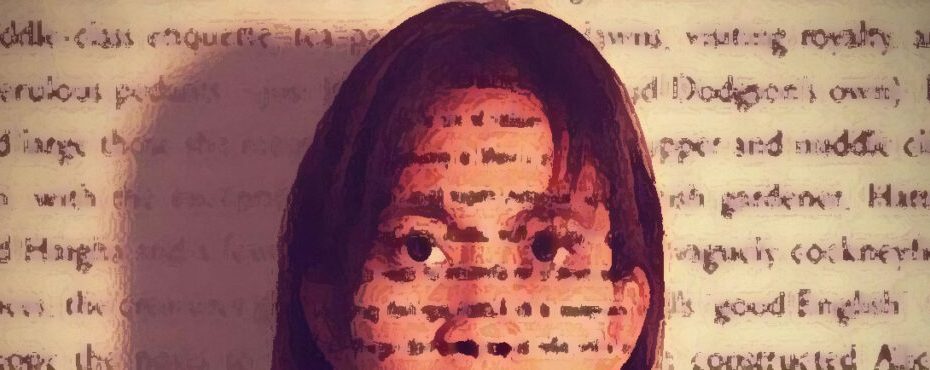Those of you who are new to the website, and indeed the discussion surrounding dis/Abled/enabled participation in archaeology, will have likely noticed some unfamiliar language has been used on this website.
Indeed, many of you may struggle to find the most appropriate term to use in a given situation and worry about inadvertently causing offence. To help avoid this, and because language is important in how we communicate and understand others, a guide to appropriate terms has been compiled.
Also included below are terms which are very outdated and should not be used – those included on that list are terms which are unfortunately likely to be familiar to many people and they have been included to avoid accidental use of the terms. They are in no way the most offensive terms but there was no desire to produce a list of all the horrendous and abusive terms which are used towards people who are dis/Abled on a daily basis!
Disabled v’s Dis/Abled
Disabled is seen by society as a derogatory word, implying that all disabled people are not able to do things, or that we do not have any abilities just inabilities. So by using the term dis/Abled or dis/Ability we are illustrating that each of us have Abilities in life, thus showing society that we do indeed have far more Abilities than society thinks.
Terminology used in Enabled Archaeology
By Theresa O’Mahony with contributions from Joanne Kirton
Enable: Has two meanings – To aid people’s knowledge, familiarisation, understanding and therefore bringing equality, attitudinal and social acceptance for all dis/Abled people who prospectively or do participate in any area of archaeology today.
To equip and empower dis/Abled people to overcome the obstacles towards their inclusion in many areas of archaeology, whether in equipment, negative attitudes, employment, higher education, or volunteering. This is for not only enabled archaeologists but for all those wishing to take part for the first time.
Enabling: The process of becoming enabled by providing the equipment or knowledge to become enabled, which is just the same for all people in archaeology.
Enablement: Aiding the return of (dis/Abled) enabled archaeologists to re-learn (after illness, bad experiences, or years away) and/or gain back the confidence and skills they may have lost in this time period. This is a vast subject area but includes such processes as knowing how to deal with any archaeological social situation and any professional negativity or even prejudice that folks may encounter to their full inclusion within archaeology. This also covers other areas such as new technology and equipment to encourage and support job searches, interviews, how to get recognised for your skills within employment, studying, counselling and fieldwork. (The list goes on and on!)
Enabled: Enabled archaeologists will have learnt in their own lives the self-coping strategies needed, for each physical and invisible dis/Ability they have in daily life and within archaeology. This can include the above processes or none of the above.
Dis/Ability or Dis/Abled: These terms emphasise the /A because the first part of the word dis is seen as negative and the A emphasises within these two words the Ability of all dis/Abilities.
Disclaimer
The below positive and negative terms are not comprehensive but an example of commonly used words that are appropriate or inappropriate. If you have a question about the most appropriate and best language to use please contact us.
Within the positive terminology below, these words emphasise our Abilities and not our disabilities.
Positive Terminology used in Enabled Archaeology:
- Blind
- Cognitive Disability
- Deaf
- Has mobility issues
- Learning Disability
- On the Autistic Spectrum
- Partially deaf
- Person who has (any mental health condition)
- Person who is (blind, deaf etc)
- Physical disability
- Strategies …(such as self-coping, etc)
- Non- Visible disability
- Uses Crutches
- Uses a Cane
Wheelchair user (meaning the liberty of a wheelchair being a tool of and for independence)
Many of the words below in the negative list refer to us not only in the negative, but supports the medical model of disability which stated it is the fault of the individual’s medical illness or condition that the person is disabled, and medical practitioners must eradicate as much as possible the disability so that in society we all ‘look the same’ as everyone else or ‘normal’. I ask what is ‘normal’ anyway?
The below negative terminology does not cover all negative nor offensive language experienced by us such as swearing and the attitudinal behaviour of a minority within archaeology towards dis/Abled participation today.
Negative or/and Offensive Terminology:
- Able-bodiness
- Afflicted by …
- Brave
- Confined to a wheelchair
- Crazy
- Crippled by….
- Deaf – Mute.
- Differently abled
- Disorder (mental health conditions)
- Freak
- Handi-capable
- Handicapped
- In a wheelchair
- Impaired….usually something like: deaf or sight impaired or speech impaired (just a few examples)
- Inspiration
- Invalid
- Lame
- Maniac (bi-polar)
- Mental Defective
- Midget
- Resilient
- Retard (Some of us have been called this within some archaeological groups. I have for instance)
- Specially abled
- Suffering from,
- Suffering with…
- Surviving despite…..
- Temporarily able-bodied
- Vertically challenged (dwarfism)
- Victim of…
- Wheelchair bound
By Theresa O’Mahoney
